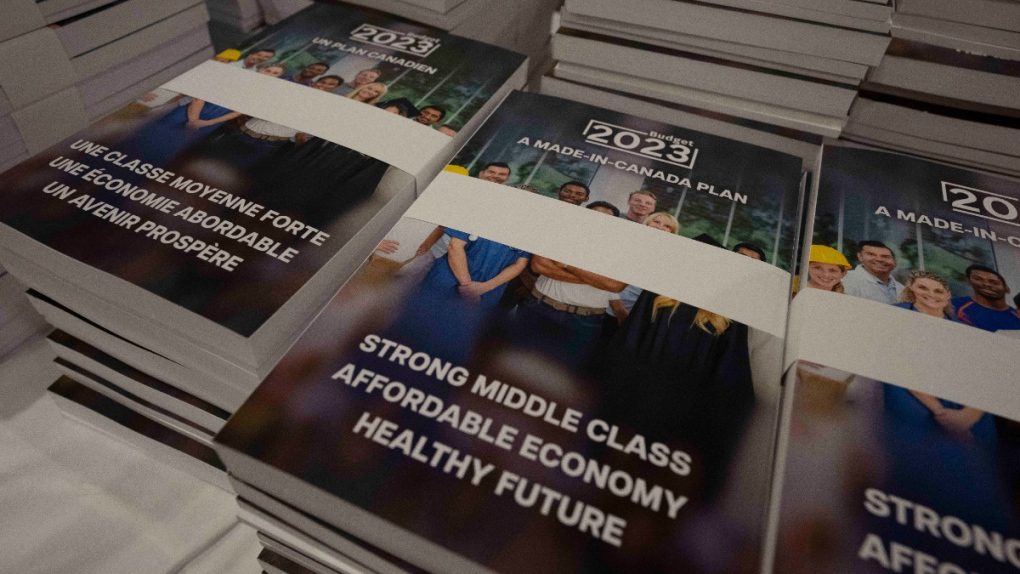Global Courant 2023-04-13 15:10:00
A whopping 40 percent of Canadians believe the new federal budget will address their concerns “badly” or “very badly,” according to a new survey from Nanos Research conducted for CTV News.
Of the more than 1,000 people polled, 19 percent said based on what they’ve heard they would rate the federal budget as poor in addressing the issues that worry them and their families, while 20 percent say it very bad .
Thirty-three percent say the federal budget, which was released at the end of March, is working “on average” based on what they’ve heard.
Two percent said the budget is working ‘very well’, 17 percent described it as ‘good’ and nine percent were ‘uncertain’.
At the same time, about 70 percent of respondents said they were “concerned” (42 percent) or “somewhat concerned” (29 percent) about the budget that would increase the country’s deficit, which is expected to reach $40.1 billion in 2023 -24 or nearly $10 billion more than last fall’s economic forecast.
Despite the increased spending, a majority of Canadians expressed support for programs such as the multi-year green plan.
Designed in part to compete with the US, the plan would allocate $20 billion from the Canada Infrastructure Bank to major infrastructure projects for clean electricity and growth.
Thirty-six percent of Canadians “support” the use of taxpayers’ money for these types of initiatives, while 32 percent “somewhat support” the move.
The findings come as Nanos poll, released Wednesday, shows the Liberals trailing the Conservatives in terms of popular support.
Prime Minister Justin Trudeau’s party is up 2.2 percentage points from four weeks ago and has 30.6 percent support, while Pierre Poilièvre’s Conservatives are up three percentage points to 35.8 percent.
In late March, a poll conducted by Nanos Research also found that Poilièvre was Canada’s preferred prime minister over Justin Trudeau.
“Conservatives still have an advantage beyond the margin of error,” Nik Nanos, pollster and president of Nanos Research, told CTV’s Trend Line podcast Wednesday.
Where the Liberals may find some good news, he added, is that the NDP and Bloc Québecois also have less support, with the New Democrats down 2.5 percentage points to 18.1 percent and the Bloc up 3.4 percentage points to 5. .5 percent.
“The Liberals need the NDP to make sure those vote splits don’t happen and also when the bloc is in the province of Quebec, that’s usually good news for the Liberal Party of Canada,” Nanos said.
REGIONAL DIFFERENCES
Prairies residents were the most likely to rate the federal budget as bad or very bad at about 53 percent, followed by BC at 44.6 percent and Ontario at nearly 42 percent.
Residents across all regions said they were concerned or somewhat concerned about the increased deficit, with the Prairies leading the way at about 80 percent, followed by Ontario (71.6 percent) and BC (71.2 percent).
A majority of Canadians in all regions also support or somewhat support the federal green plan, with the highest support in Atlantic Canada (77.2 percent), Quebec (73 percent) and Ontario (69.3 percent).
METHODOLOGY
Nanos conducted an RDD dual frame (landlines and mobile lines) hybrid phone and online random survey of 1,063 Canadians aged 18 or older between April 1 and 6, 2023, as part of an omnibus survey. Participants were randomly recruited by phone using live agents and surveyed online. The sample included both land and cell lines across Canada. The results were statistically controlled and weighted by age and gender using the most recent census information, and the sample was stratified geographically to be representative of Canada. Individuals called at random using random digits with a maximum of five callbacks. The margin of error for this study is three percentage points, 19 times out of 20. This study was commissioned by CTV News and conducted by Nanos Research. Graphs may not add up to 100 due to rounding.








